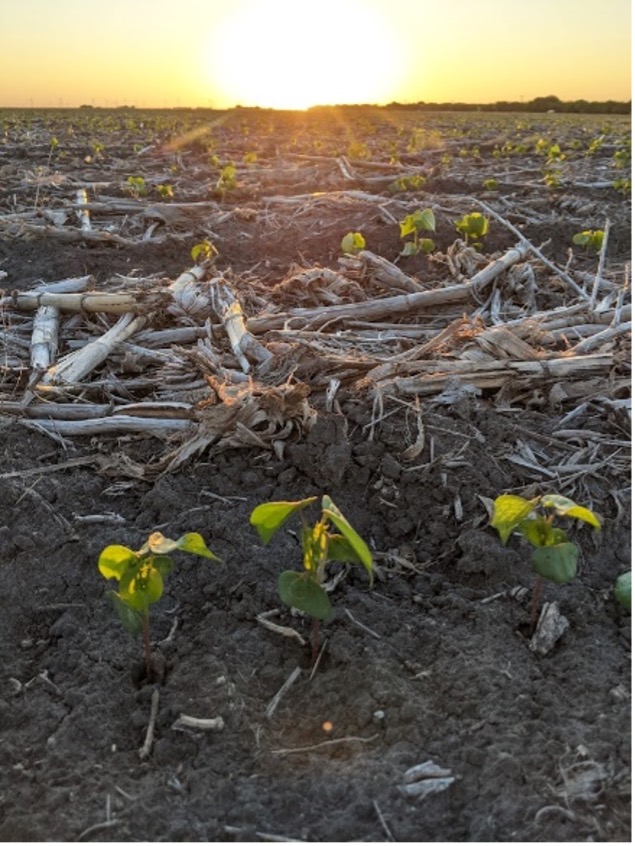Farmers are businesspeople and one of the first pieces of information asked by farmers and crop consultants considering a transition to soil health practices is, “What is the business case for adopting soil health practices?” Because of this question, research and communication related to on-farm economics is a key component of the U.S. Regenerative Cotton Fund. Regenerative soil health management has been shown to reduce inputs and increase crop yield and resilience. The Soil Health Institute interviewed 100 corn and soybean farmers and used partial budget economics assessments to document the costs and benefits associated with regenerative soil health management practices. Interviewed farmers are located across nine states and the interview results found that soil health improves net farm income. Of the farmers interviewed, 97% reported increased crop resilience to extreme weather and 67% reported higher crop yield. These 100 farms were primarily in Midwestern states and were mostly growing corn and soybeans, so even though substantial improvements in net farm income were found (increased net farm income by an average of $52/acre for corn and $45/acre for soybean), more work is needed to map out the business case for cotton production systems by region.

“Regenerative soil health management has been shown to reduce inputs and increase crop yield and resilience.”
Because 85% of corn and soybean farmers had increased profitability from using regenerative soil health management versus conventional management, there is reason to believe cotton systems will also be more profitable with better soil health. There are many unanswered questions regarding the regionality of profitability for soil health practices and the importance of increasing yield in regenerative soil health management of cotton. Locally based economic information is needed for cotton production so that it can be used to evaluate the risks and benefits of adopting regenerative soil health management.
As a part of the U.S. Regenerative Cotton Fund, the Soil Health Institute will assess the economics of cotton producers implementing regenerative soil health management and also cotton producers that are just transitioning to regenerative soil health management. The economic results of farmers who have adopted regenerative soil health management systems can help others adopt and will be reported through state-based producer networks and incorporated into the Healthy Soil for Sustainable Cotton training programs. In this way, farmers can work together to create cotton production systems that are more regenerative and profitable.
“…farmers can work together to create cotton production systems that are more regenerative and profitable.”